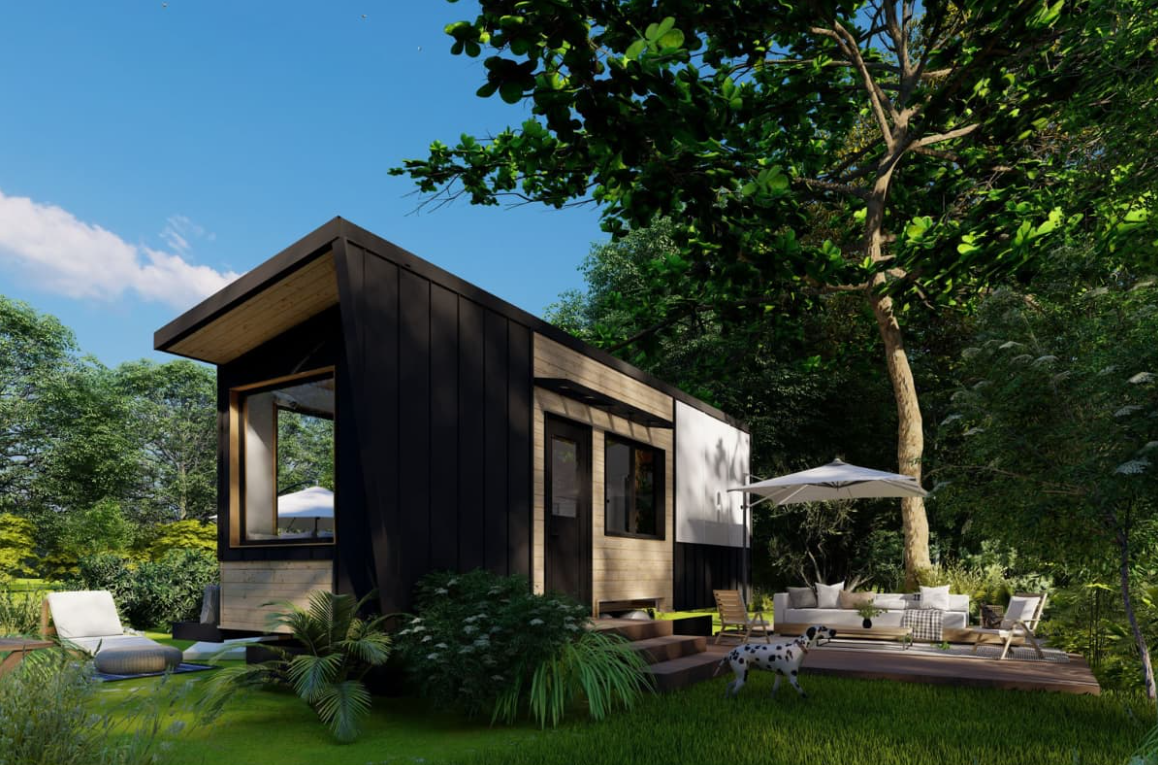Tiny houses come in all layouts and sizes. As a potential tiny homeowner, you'll soon discover that one size does not fit all when it comes to their weight. In fact, an average tiny house on wheels typically weighs around 3,000 to 30,000 pounds. However, some may be lighter, while others can exceed this range.

But in the case of our tiny house on wheels at Clever Tiny Homes, we keep it at approximately 14,000 pounds for our Clever S and 24,000 pounds for our Clever 1.
So, what factors influence how heavy or light a tiny house weighs? Let's delve into these key factors that affect the weight of a tiny house:
Size
The physical dimensions of your tiny house can significantly impact its overall weight. This includes the length, width, and height. Generally, a smaller tiny house will naturally weigh less than a larger one. Keep in mind that every square inch added to your tiny home increases the materials used which adds to the weight.
Construction Materials
The materials used to build your tiny house also contribute to its total weight.
For example, traditional wood framing and siding will result in a different weight compared to a tiny house with a steel frame or alternative materials. This is where customization is crucial as the choice of materials can impact the durability, insulation and overall look of your tiny house.
Amenities
If you are planning to include a full kitchen with all the appliances, a bathroom with modern fixtures, and a cozy living area then that can also add to its weight. The more amenities and features you integrate into your tiny house, the heavier it becomes. While these additions enhance your living experience, they also add to the overall weight of your home.

Customizations
Customization is one of the main reasons that made tiny houses extremely popular. However, it's important to consider that each customization comes with its own contribution to weight. If you've added unique features, such as additional storage solutions, built-in furniture, or a rooftop deck, remember that these custom elements add to your tiny house's weight.
Trailer and Foundation
Trailers come in various weight-bearing capacities, and the type you select can influence the overall weight of your tiny house. Similarly, if your tiny house is built on a foundation, you'll need to ensure that the foundation can support the weight.
Why Does Tiny House Weight Matter?
Why does the weight of your tiny house matter? Remember that the weight of your tiny house holds significance for several practical reasons that can impact your tiny living experience.
For instance, the ability to move your home as needed allows you to explore new places, live off-grid, or find the perfect spot to settle. However, towing a tiny house comes with its own set of requirements.
Towing a heavy load requires a capable vehicle with the power and stability to handle the weight safely. If you're not aware of the weight, you may choose an inappropriate towing vehicle, which can lead to safety issues on the road.
Regardless of whether your tiny house is on wheels or a foundation, knowing its weight is essential for proper placement. Placing your tiny house in a location that can't support its weight can lead to structural damage or even safety hazards. When setting up your tiny home, be sure that the chosen location – whether it's on your property or in an RV park – can handle the load without issues.

Getting an Accurate Weight
To determine the exact weight of your tiny house, it's advisable to consult with Clever Tiny Homes. They can provide you with precise information about your specific tiny house, including its weight, and ensure that it complies with safety standards and regulations.
If you're considering a tiny house, you can schedule a free consultation with one of the Clever Tiny Homes team and inquire about accurate weight information tailored to your home.

.jpg)